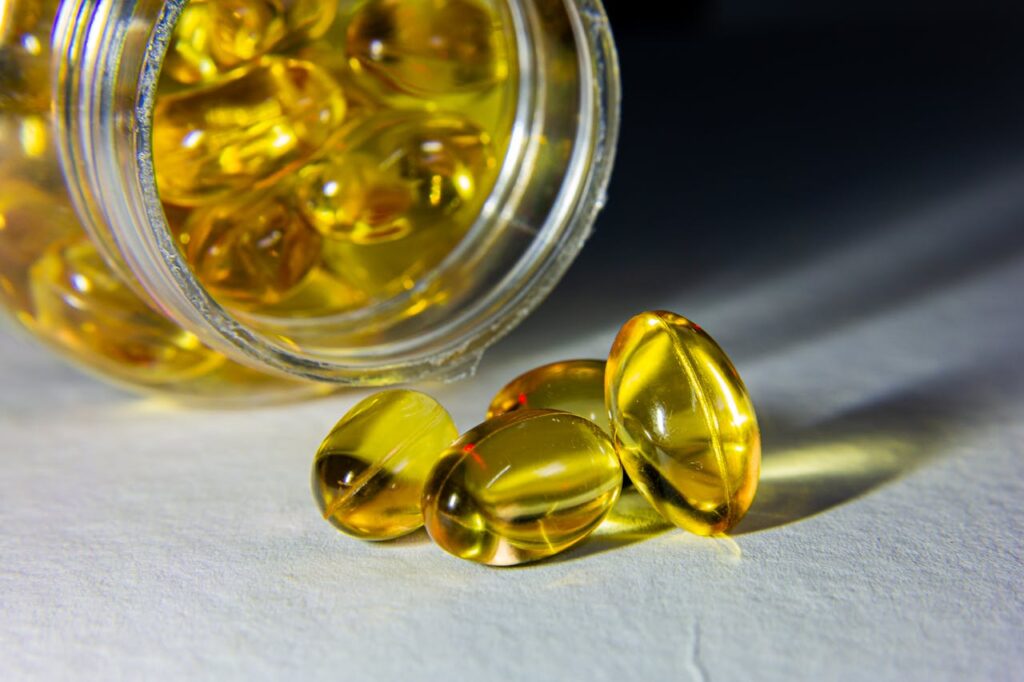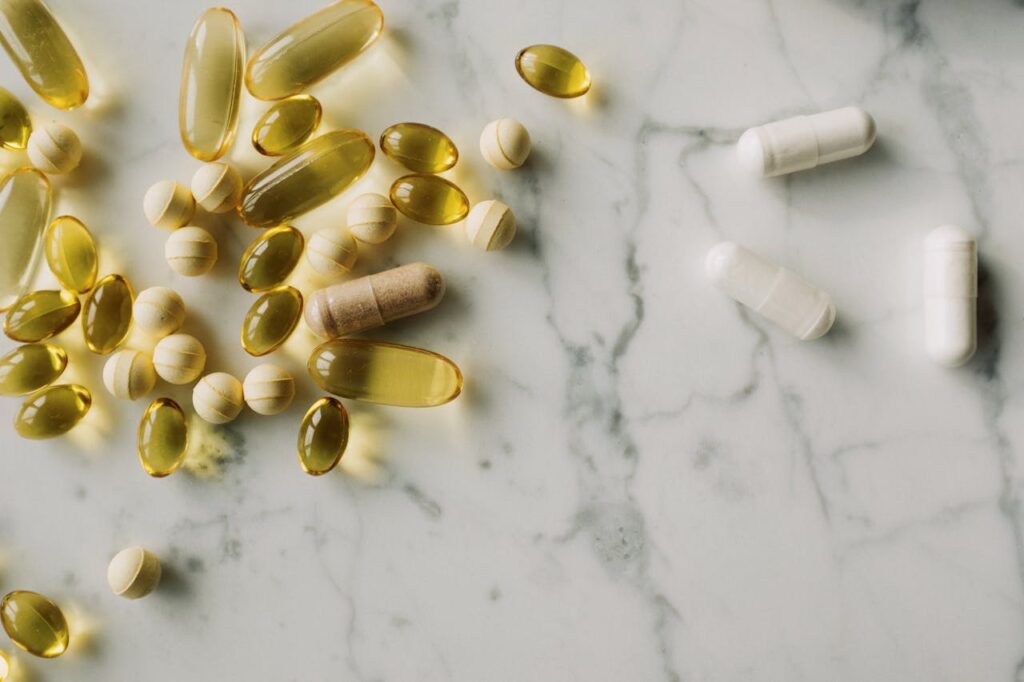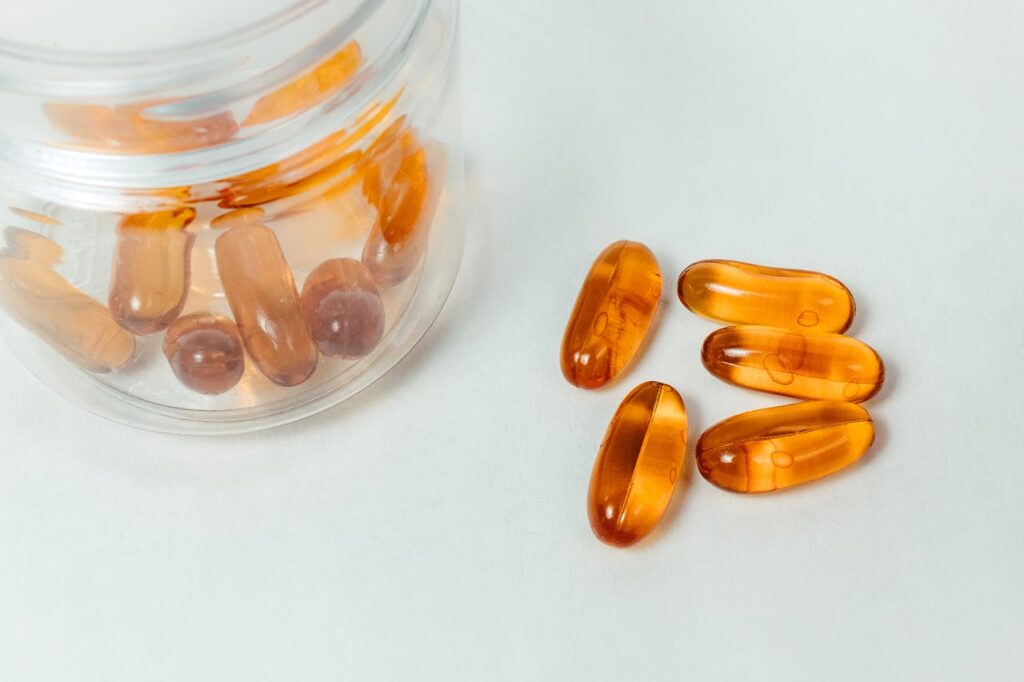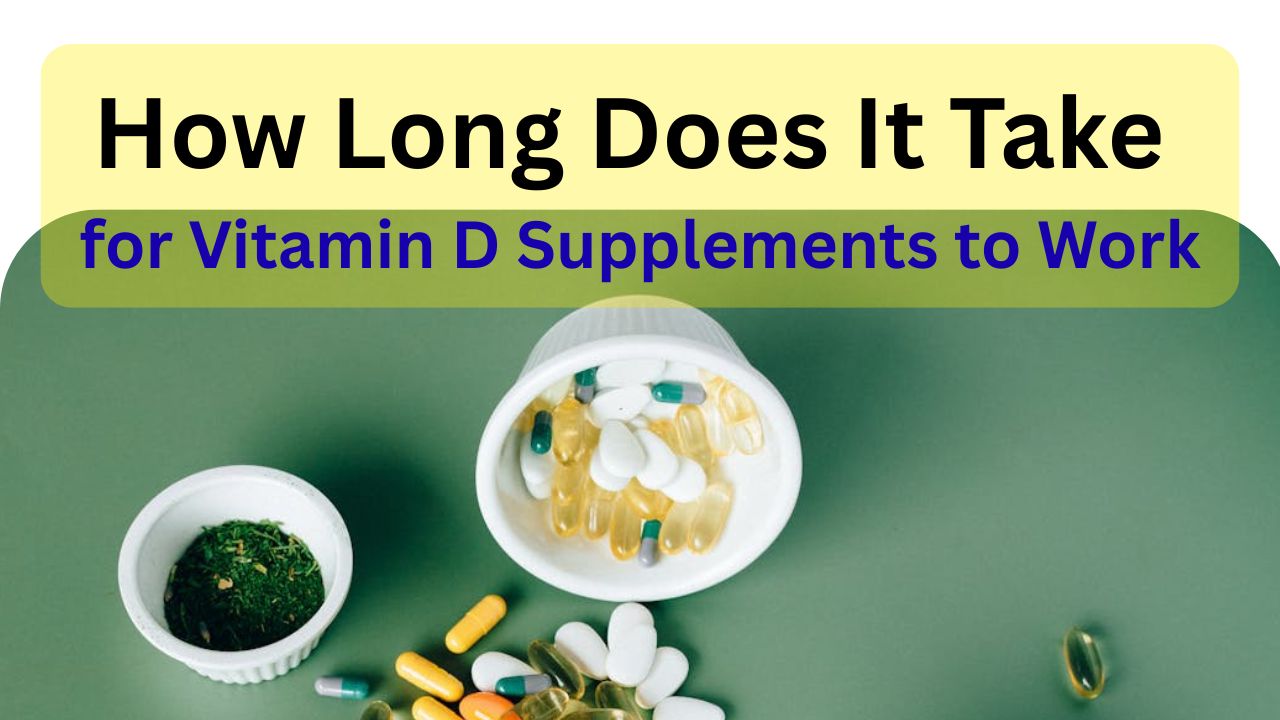It’s often called the “sunshine vitamin” because your skin produces it after you’ve been out in the sun. But even though vitamin D is intake from the outside doesn’t mean we are getting enough of it — indeed, vitamin D deficiency is one of the most widespread nutritional deficiencies worldwide. Few causes of vitamin D deficiency are weakness, lack of sleep, stress, anxiety and depression. For some the equation is so severe that they say things like “Vitamin D deficiency destroyed my life.” How Long Does It Take for Vitamin D Supplements to Work?
One of the most common inquiries I receive from individuals once they’ve been told their vitamin D levels are low is:
“how long am i going to feel like shit after taking 50,000 iu of vitamin d?”
“Does vitamin D help with fatigue?”
“How long does it take for vitamin D to work for anxiety or depression,” you inquire?
”When is ‘vitamin D 10,000 or 20,000 or 50,000 IU’ going to make me feel better?
In this mega guide, I’m going to dig into the science behind those questions for you, map out the timelines we’re observing in the clinical data, and cut through the noise to help you understand what’s possible when you start supplementing vitamin D each day and what isn’t.
Table of Contents
Understanding Vitamin D Deficiency or What Causes Deficiency?
No Sunlight (subclincal or supplemented; indoors and/or sunscreen; living in high latitude): JUNE-AUG 10-2.

Black skin (melanin blocks the skin’s ability to produce vitamin D)
Low intake of food-source, or vitamin D supplementation or food product enrichment with added vitamin D, especially with regards to fatty fish, or other fortified foods.
- Age(the skin is less efficient at using vit. D)
- Symptoms of Deficiency
- Constant fatigue and tiredness
- Bone and joint pain
- Muscle weakness
- weakened immune system (cold flu and )
- Mood changes, anxiety, or depression
- Sleep disturbances
- Slow wound healing
- Advanced Diseases of Severe rickets (a) (in adults osteomalacia).
A further 61% are suffering from an extreme lack of vitamin D in the way they are able to function on a typical day, the YouGov poll found. Yes, some people the narrative is nothing short of this: the story of a life derailed by an evil flaw: “Vitamin D deficiency almost ruined my life” — that is one way to try to show the kind of damage the lack of the stuff can cause, both in body and soul.
How Long Does It Take for Vitamin D Supplements to Work?
Vitamin D supplementation doesn’t work at lightning speed for everyone. How long until you notice a difference will depend on a few things:
Baseline Levels – The less 25(OH)D you start with, the longer it takes to correct things.
Dosage Strength – High doses (e.g. 50,000 IU per week) elevate blood levels in a quicker manner than conventional daily-based doses (1,000-2,000 IU).
Form -D3 (cholecalciferol) is better than D2 (ergocalciferol).
Absorption – Vitamin D is best absorbed with fat meals.
Weight – Obese and overweight people often require a higher dosage.
Consistent – Failing to take the medication can slow progress.
Health – Digestive or kidney/liver issues can delay response.
How Soon Will I Feel Better After Taking Vitamin D 10000 IU?
Vitamin D at 10,000 IU daily is sometimes prescribed for short-term correction of moderate deficiency.
Timeline:
Blood levels usually improve within 6–8 weeks.
Fatigue and energy levels often improve first.
Mood and sleep regulation may take 2–3 months.
Evidence: A Reddit user shared that after taking 10,000 IU daily for 10 weeks, their vitamin D levels rose from 16 ng/mL to 99 ng/mL, with dramatic improvements in fatigue, panic attacks, and hair loss (Reddit).

How Soon Will I Feel Better After Taking Vitamin D 20000 IU?
20000 IU of vitamin D would be a common weekly or every second week dosage.
Timeline:
Its impact to fatigue, muscle strength and immunity may be observed within 4 to 8 weeks.
Blood levels peak between 2 and 3 months and then level off.
Note: Do not take this dose except under a doctor’s supervision to avoid toxicity.
How Soon Will I Feel Better After Taking Vitamin D 50000 IU?
The most-frequently prescribed therapy for insufficiency is the vitamin D 50,000 IU capsule.
How it’s taken: Typically once a week for six to eight weeks.
Timeline:
A 2025 study reported a complete resolution of clinical symptoms after 2 months of supplementation (jhpn. biomedcentral. com).
Energy and fatigue improvement are usually the first to notice effect (sometimes within 2—4 weeks).
Addressing deficiency level: 8–12 weeks.
Real world experience: One person writes: “My vitamin D was 8 … went to 37 after 2 months of 50,000 IU … wow!” (Reddit).
How Soon Will I Feel Better After Taking Vitamin D 60000 IU?
In some countries like India, as a weekly sachet or softgel 60,000 IU of vitamin D is available.
Timeline:
Fatigue, muscle weakness, and low immunity get better after 4–8 weeks in most cases.
Mood-enhancing effects might require several weeks (8–12 weeks).
Personal notes: This does work, HOWEVER, 60,000 IU is also very high and this should not be done without medical advice.
How Quickly Does Vitamin D Work for Fatigue?
Fatigue is also among the first symptoms to resolve once vitamin D levels are corrected.
STUDIES show: Weekly or monthly 50,000 IU of vitamin D perks up energy and decreases tiredness in 4-8 weeks (jhpn. biomedcentral. com).
Anecdotal evidence also suggests that the feeling of exhaustion dissipates in a period of 6–10 weeks with adequate supplementation.
How Long Does It Take for Vitamin D to Work for Anxiety?
The evidence for anxiety is mixed.
- Meta-analysis (2023): Found that vitamin D supplementation did not significantly improve anxiety symptoms across trials (pubmed.ncbi.nlm.nih.gov).
- Timeline: If it helps, improvement may take 6–12 weeks, but it’s not guaranteed.
How Long Does It Take for Vitamin D to Work for Depression?
The data on anxiety are mixed.
Meta-analysis No impact ofvitamin D on anxiety symptoms (2023(pubmed. ncbi. nlm. nih. gov).
Timeline: Anything that’s going to help you should start to make a difference in 6–12 weeks, but it may not.
It is more obvious in depression than in anxiety.
Older people Trial: 50,000IU * 8 weeks weekly had less depression scores than placebo (pubmed, E.A. ncbi. nlm. nih. gov).
Long term: 2000 IU a day for 5 years> did not lower the risk of depression, so if there is a benefit it is temporary not preventive (pubmed.ncbi.nlm.nih.gov).
Timeline: You’ll feel differently in a couple of months if it’s a time of testing.

Vitamin D Deficiency Ruined My Life: Real Experiences
Vitamin D deficiency is even worse than we thought. Fatigue, brain fog, body aches and malaise, and low mood can make life a difficult thing to live. Online, patients share their symptoms that had lasted for years clearing up after vitamin D treatment.
The science supports this accessibility: Deficiency is associated with increased risk of depression, soft bones, weak immunity and low quality of life. The good news? Eventually levels will normalize and recovery begins — which could take months.
Tips to Make Vitamin D Work Faster
Take vitamin D with fatty foods (avocado, nuts, olive oil, dairy).
Be reliable — don’t miss a dose a week, or each day for that matter.
Take with magnesium and vitamin K2 for better absorption.
Monitor with 3-monthly bloods.
Otherwise get in plenty of sunlight and forests to offset sun exposure.
Safety and Toxicity Warnings
Safe range: Up to 1,000-4,000 IU daily to maintain.
Risk of toxicity: Chronic consumption of more than 10,000 IU daily can cause nausea, vomiting, kidney damage, and cause calcium levels to go too high (health. com, verywellhealth. com).
Receiving medical supervision is imperative with high-dose therapy (50,000–60,000 IU).
Summary Table: Timelines of How Long Does It Take for Vitamin D Supplements to Work?
| Dosage | Blood Level Response | Symptom Relief Timeline |
| 10,000 IU daily | 6–10 weeks | Fatigue improves in ~6 weeks, mood in ~2–3 months |
| 20,000 IU weekly | 4–8 weeks | Energy and immunity improve by 2 months |
| 50,000 IU weekly | 8–12 weeks | Fatigue better in 2–4 weeks, mood in 2–3 months |
| 60,000 IU weekly | 4–8 weeks | Energy within a month, depression relief later |

Conclusion
So, how long before vitamin D supplements work?
Fatigue: 4–8 weeks
Mood (anxiety/depression): 8–12 weeks
Longest stage to correct a deficiency: 2–3 months (in an adult, optimization to cause levels of 50,000–60,000 IU)
If supplemental feeding is new to you, be patient: It can take a while for your stores to rise. See improvement in weeks, but it may take a couple of months to heal fully.
Disclaimer
This article is for informational and educational purposes only. Never ignore professional medical advice in seeking treatment because of something you have read on the WebMD Site. Never ignore professional medical advice in seeking treatment because of something you have read on the WebMD Site. High-dose vitamin D supplementation (10,000–60,000 IU) must be with medicine closely monitored by the patient to avoid toxicity.
Hello everyone, I am Md Habibullah Sheikh a registered Pharmacist with 6 years of experience in Clinical, Community, and corporate pharmacy. I have worked for HLFPPT, Gauripur Hospital, Reliance Retail Pharma (Netmeds) as well and Now working for Zota Health Care as a Senior Pharmacist. We, In Health Easy Fitness, share trustable health education, tips & awareness to help people find the best health choice. Always talk to a doctor before taking any kind of Health issue Decision.


